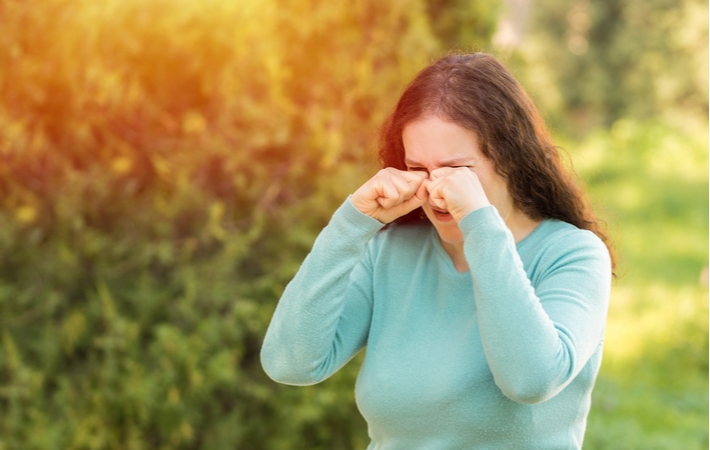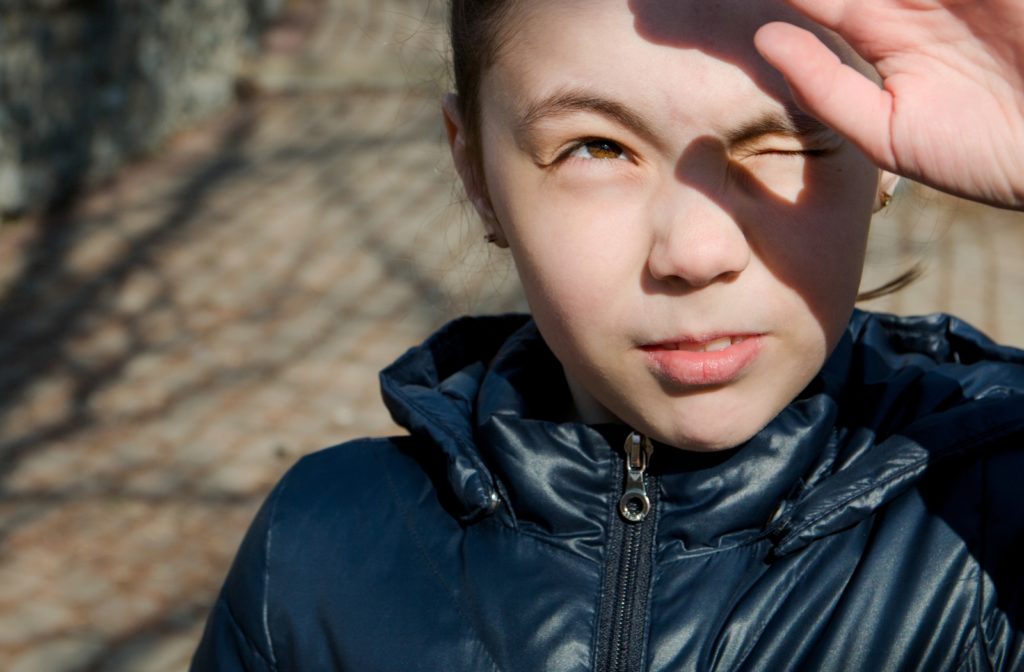Sun-Safety for Eyes
Staying sun safe allows us to enjoy our time in the sun without risking our health. Any tissue can be affected by sun damage. But our skin and eyes are the most vulnerable to sunburn because they’re exposed.
Many people wear sunglasses to shield their eyes from the sun. Sunglasses can block brightness and UV light. But keeping your eyes out of direct sunlight is also vital for preventing eye disease and sunburn.
How UV Rays Affect Our Eyes
The sun is the most significant source of UV radiation in our daily lives. Our eyes absorb UV light, and the effects are cumulative. Even brief exposure can contribute to long-term eye health problems.
You may have heard it’s dangerous to stare directly at the sun, but reflections can also expose your eyes to UV radiation. Snow, water, sand and concrete are surfaces that can reflect and increase the effect of UV radiation.
UV damage can increase the risk of multiple eye problems, including:
- Cataracts
- Age-related macular degeneration (AMD)
- Corneal sunburn
- Eye growths (pterygium or pingueculae)
- Eyelid skin cancer
As UV radiation can cause many eye problems, the symptoms can vary. However, if you experience eye pain, corneal inflammation, or light sensitivity, it’s crucial to see your eye doctor immediately. An optometrist can assess your eye health and help treat sun damage. Call for an emergency eye appointment.
What Is Eye Sunburn?
Eye sunburn is a form of keratitis (corneal inflammation) known as photokeratitis. Sunburned eyes can appear pink or red. You may even mistake the inflammation for pink eye. Seeing your optometrist is crucial to diagnose your condition and receive appropriate treatment.
Photokeratitis usually takes 24–72 hours to resolve. More prolonged exposure may lead to severe symptoms, but an eye sunburn can commonly cause:
- Eye pain
- Blurry vision
- Constricted pupils (miosis)
- Eyelid twitching
- Gritty, irritated eyes
- Headache
- Light sensitivity
- Redness or swelling
- Temporary vision changes
- Seeing halos
- Watery eyes

Preventing Photokeratitis
Prevention can help your long-term eye health and help you avoid short-term eye pain. Talking with your optometrist about your vision needs, including your routine and regular sun exposure, can help them customize recommendations for your sun safety. For example, if you play sports or work outdoors, they may recommend safety eyewear with UV protection.
However, there are some general prevention guidelines you can follow:
- Apply UV-blocking coatings to prescription glasses
- Choose sunglasses that provide 100% UVA & UVB protection
- Consider contact lenses with UV protection
- Wear a wide-brimmed hat or baseball cap
- Try clip-on sunglass lenses for prescription glasses
- Use UV-blocking goggles for snow and water sports
Prevention for Children
Children are more at risk than adults. Children tend to spend more time outdoors, so they are more vulnerable to cumulative exposure—approximately 3 times as much as the average adult. Additionally, children’s eyes can’t filter UV light as efficiently as adult eyes, increasing their risk of internal eye damage, including cataracts and macular degeneration (AMD).
Try these sun-safety tips for children:
- Check the UV index and be aware of UV radiation sources (including sunlight reflections)
- Ensure your child wears sun protection outdoors (sunglasses, wide-brimmed hat)
- Teach your children to never look directly at the sun
- Children (and adults) should avoid direct sunlight between 10:00 AM and 4:00 PM when the sun’s rays are strongest.
- Keep children under 6 months out of direct sunlight. You may use an umbrella, canopy, or other protection to enjoy time outdoors.
Protective eyewear is a crucial aspect of sun safety for all ages. If your child wears prescription lenses, choose eyeglass or contact lenses with UV protection. When selecting non-prescription sunglasses for your child, choose:
- A close-fitting, wrap-around frame
- 100% UVA and UVB protection
- Impact-resistant lenses
Care for Sunburned Eyes
It’s crucial to book an eye appointment to assess eye health after experiencing a sunburned cornea. Your optometrist may prescribe antibiotic eye drops to prevent infection, recommend artificial tears to help with moisture, or provide other eye care tips.
In addition to your optometrist’s recommended treatment, you can try some at-home care tips:
- Place a cold, clean cloth over your closed eyes to help reduce swelling. You may also use a covered ice pack. Place the cold cloth or ice pack 3–4 times daily for 15 minutes during the first 24–48 hours.
- Do not wear makeup or contact lenses for at least 24–48 hours, as they might irritate your eyes. Your optometrist can recommend safely resume wearing your contact lenses or makeup.
- You may take over-the-counter pain medication if needed. Contact your optometrist if pain increases or continues after 48 hours.
- Avoid rubbing your eye. Your eye may feel irritated or as if something is in the eye. However, rubbing or touching can cause more harm.
See Legacy Eyecare for More Sun Tips
You can enjoy the sun and practice sun safety. Our team at Legacy Eyecare can discuss more tips for protecting your one-of-a-kind eyes. Whether you’re sun-obsessed or only step out for a dose of vitamin D, we offer personalized advice about maintaining your vision. We look forward to seeing you. Book an appointment today!



